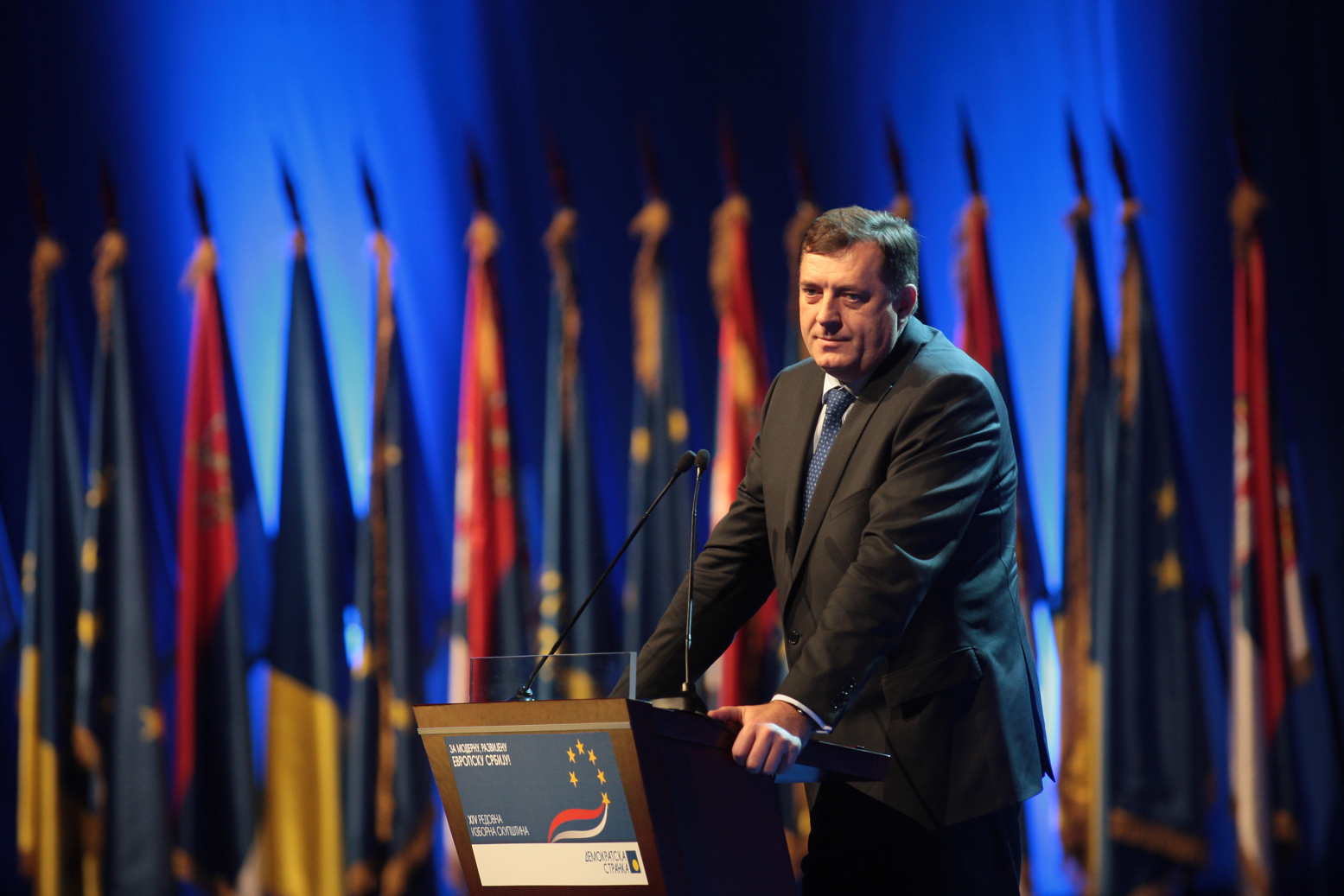Republika Srpska – after independence
Bosnia’s war ended with a partition plan, which the international community subsequently used all its efforts to undermine and create a unified state. Now the west’s power in the country has receded, the natural logic of the Dayton Peace Accords has reemerged, and the country is likely to break apart. This article suggests that now the international community’s best response to the imminent Bosnian fracture may be to reluctantly accept it.
| Suggested Reading | Collaborate | GCCT |
By Matthew Parish
Abstract
It is often forgotten that Bosnia’s 1992-95 civil war concluded with a partition plan, dividing the country into a Muslim-Croat Federation and a “Serb Republic” with institutions of central government initially so weak as to be almost invisible. But those institutions were developed through international community interventions over the subsequent thirteen years, the recalcitrant sides were forced to cooperate, and the partition was disguised.In the last three years, the international community’s interest in the country has waned, the institutions created have proved unsustainable in the absence of external pressure, and the current leader of Bosnia’s Serbs has set about dismantling the central government. He is now manoeuvring to pursue de facto, then de jure, independence of Serb territory.The international community’s principal figurehead in the country, the High Representative, has traditionally been a proconsul with powers of imposition. But he now has so little authority that he is powerless to prevent the Bosnian Serbs’ plans, and this is unlikely to change.The military and political options available to the west to prevent secession are unattractive and unlikely to work. What Bosnia’s Serbs achieve, Bosnia’s Croats will subsequently attempt. The country may split into several pieces.The west must therefore radically reassess policy towards Bosnia. Reluctant acceptance of Bosnian Serb de facto secession, although unattractive from a historical perspective, may prove the least bad option. In any event a sensitive and flexible diplomatic strategy is required, because if Bosnian Serb and Croat separatist aspirations or Bosnian Muslim attempts to keep the country unified are mishandled, there is a real risk of renewed armed conflict.
The author was formerly Chief Legal Adviser to the International Supervisor of Brčko, a city in northern Bosnia subject to post-war supervision by the US government by reason of its strategic importance in the country’s conflict. He is a frequent writer and commentator on Balkan affairs. His book on international intervention in post-war Bosnia, A Free City in the Balkans: Reconstructing a Divided Society in Bosnia, is published by I.B.Tauris. For further details see www.matthewparish.com. Gratitude for comments and criticisms on early drafts of this article is due to Richard Dalton and Adam Moore. Responsibility for all errors and omissions remains the author’s alone.




















Pingback : Getting Bosnia to embrace spirit of reconciliation | Ian Bancroft | News Team
Pingback : Getting Bosnia to embrace spirit of reconciliation | Ian Bancroft | Europe News
Pingback : Croat crisis pushes Bosnia towards endgame | TransConflict | Transform, Transcend, Translate - TransConflict Serbia
Pingback : Croat Crisis Pushes Bosnia Towards Endgame – Analysis « Eurasia Review
Pingback : Inside Conflict – Banja Luka today | Studies.me
e do not like to live under musl. bossing teror, and we like to be free.there are enough reason for EX bih, and
this fact I anounce now, is just one of
Ex director Kemal Causevic have take 52000 KM=26000 Euro selery on month, and on question of reporter of RTRS, on begining of
PDV work, has told that his selery is 5000 KM.
I know he gat 52000 KM on month and that is more than Helmut Kohl had or George Bush
I am teling a thru, there is way to chack it out.
Srb